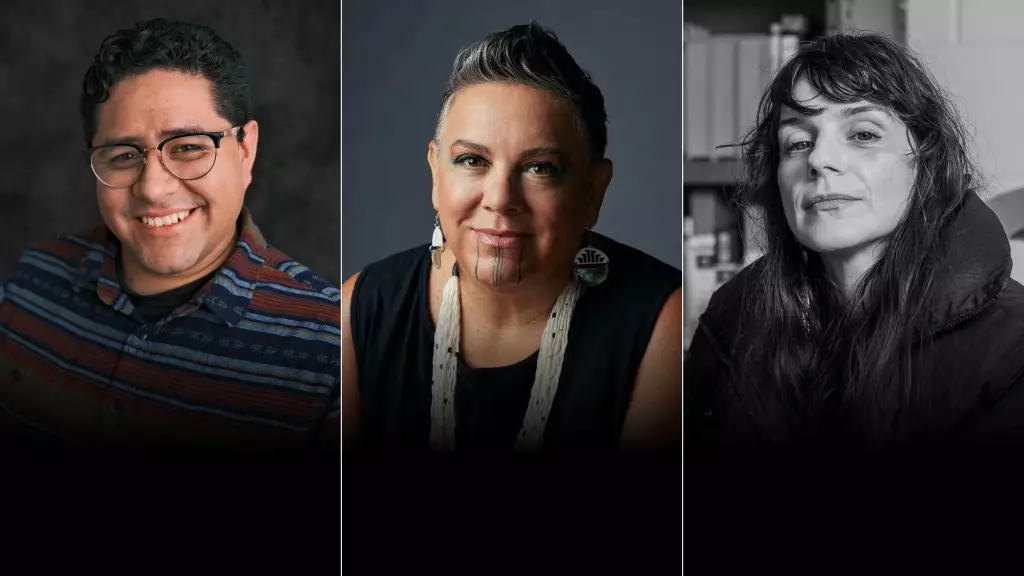In a landscape increasingly recognizing the richness of diverse voices in filmmaking, the Sundance Film Festival has taken significant strides in fostering Indigenous talent through the Merata Mita Fellowship and the Graton Fellowship. Recently announced during the Native Forum Celebration, these fellowships aim to amplify the narratives and creative visions of Indigenous artists, particularly women and those from California-based tribes. The festival’s effort not only highlights individual achievements but also signifies a broader commitment to inclusivity and representation within the film industry.
Celebrating Indigenous Female Filmmakers with the Merata Mita Fellowship
Named after the pioneering Māori filmmaker, Merata Mita, the Merata Mita Fellowship provides a platform for Indigenous women-identified artists aspiring to direct feature films. In 2023, Rhayne Vermette, a Métis artist, was honored with this recognition. Vermette’s statement reflects deep reverence towards past recipients, indicating a vibrant lineage of inspired filmmakers who have paved the way for new creatives. The fellowship offers financial support, mentorship, and ongoing development opportunities, including access to the Sundance Film Festival itself.
This emphasis on mentorship and creative growth is crucial. By nurturing Indigenous women storytellers, the Merata Mita Fellowship directly contributes to diversifying the narratives we see in cinema. Vermette’s perception of Mita as a beacon of creativity illustrates how influential figures can shape the ambitions of new generations. By continuing this heritage, Sundance not only supports individual dreams but also enriches the visual tapestry of Indigenous stories that seek to connect with broader audiences.
Similarly, the Graton Fellowship, established specifically for Indigenous artists from California-based tribes, underscores a local commitment to cultural storytelling and representation. The fellowship, endowed by the Federated Indians of Graton Rancheria, offers substantial financial support and mentorship for projects in development and production. This year’s recipients, Roni Jo Draper (Yurok) and Stefan Perez (Coast Miwok), are tasked with exploring unique narratives that reflect their cultural backgrounds and community issues.
Draper’s dedication to portraying Yurok fire practices speaks volumes about the power of storytelling within Indigenous communities. By prioritizing cultural authenticity and representation, the Graton Fellowship aims to uplift Indigenous narratives in a manner that resonates with both local and wider audiences. Perez echoes these sentiments, expressing pride in representing California Indians and the hope of authentically capturing their unique histories on film. This collective endeavor underlines the importance of understanding and articulating the complexities of Indigenous identity in a contemporary context.
The significance of these fellowships extends beyond the individuals directly involved; they are pivotal in reshaping the narrative around Indigenous representation in the film industry. Historically marginalized, Native voices have often been sidelined in mainstream storytelling. By supporting Indigenous filmmakers through initiatives like the Merata Mita and Graton Fellowships, Sundance actively contributes to a more equitable industry landscape.
Moreover, the choice to provide mentors from Indigenous backgrounds ensures that recipients receive guidance grounded in cultural authenticity. This mentorship is essential for navigating the complexities of filmmaking while maintaining fidelity to one’s cultural identity. The opportunities afforded by these fellowships not only enable the successful execution of projects, but also build relationships within the industry that can facilitate future collaborations and broaden the reach of Indigenous stories.
Overall, the initiatives taken by the Sundance Institute through the Merata Mita Fellowship and the Graton Fellowship signal a transformative effort to highlight Indigenous stories and filmmakers. By championing diverse voices, these fellowships can create ripples of change, promoting a broader understanding and appreciation of Indigenous cultures. As storytellers like Vermette, Draper, and Perez step into the limelight, they pave the way for future generations, challenging the status quo and enriching the cinematic experience with profound Indigenous narratives. Through this journey, the film industry not only honors the past but also fosters a hopeful future where diverse voices can truly resonate on a global stage.

